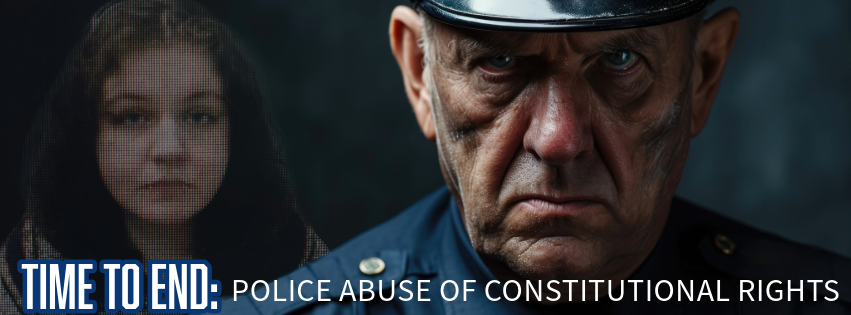Unfair Bail Amounts and Mental Health Patients
The Eighth Amendment and Unfair Bail Practices: Targeting Vulnerable Individuals and Mental Health Patients
The Eighth Amendment to the U.S. Constitution prohibits excessive bail, ensuring reasonable bail amounts relative to the offense. However, the current bail system often deviates from this principle, particularly concerning the targeting of vulnerable individuals and those with mental health conditions, leading to substantial injustices and violating fundamental constitutional rights.
Individuals with mental health issues are disproportionately targeted and affected by excessive bail amounts. Due to their conditions, they may be less familiar with legal procedures, struggle to communicate effectively with legal representatives, and have difficulty advocating for themselves. These challenges can be compounded by a lack of access to mental health resources within the justice system, further marginalizing this vulnerable population. Excessive bail can exacerbate these challenges, leading to prolonged pretrial detention and further deterioration of their mental health.
Pretrial detention can have devastating consequences for individuals with mental health conditions. It can disrupt access to necessary treatment and medication, exacerbating symptoms and increasing the risk of self-harm or suicide. Studies have shown that incarceration can be a traumatic experience for anyone, but for individuals with mental illness, it can be particularly detrimental. The isolation, lack of control, and constant stress of jail can trigger psychotic episodes, worsen anxiety and depression, and lead to self-destructive behaviors. Furthermore, the jail environment may not be equipped to provide adequate mental health care, leaving individuals without the support they desperately need.
Denying individuals with mental health conditions the opportunity for pretrial release due to excessive bail amounts contradicts the presumption of innocence. It punishes them before they are convicted and can lead to coerced guilty pleas due to the desperation to escape the harsh conditions of confinement. In some cases, individuals with mental illness may plead guilty to charges they did not commit simply to be released from jail and access proper treatment. This undermines the entire justice system and violates the right to a fair trial.
Moreover, setting excessive bail for individuals with mental health conditions raises ethical concerns. The purpose of bail is to ensure appearance in court, not to punish or isolate individuals based on their mental health status. By imposing excessive bail, the system effectively discriminates against and punishes those who are most vulnerable and in need of support. The mental health community widely recognizes the importance of treatment in the community, rather than incarceration, for individuals with mental illness. Justice-involved individuals with mental health conditions are more likely to respond positively to treatment when they are not isolated in jail but can instead receive support from family, friends, and mental health professionals in a community setting.
This issue is compounded by the fact that marginalized groups are often disproportionately targeted with higher bail amounts compared to their counterparts. This disparity in treatment not only violates the principles of fairness and justice but also perpetuates systemic inequalities and biases within the criminal justice system.
Addressing these issues requires a comprehensive approach that prioritizes fairness, justice, and the well-being of all individuals, especially those who are vulnerable and marginalized. This includes:
- Reforming the bail system to ensure bail amounts are reasonable and consider the individual’s financial circumstances, mental health status, and ability to access support services in the community.
- Implementing alternative pretrial release options, such as supervised release or mental health treatment programs. These programs could provide individuals with the support and structure they need to ensure they appear in court while also addressing their mental health needs.
- Providing adequate mental health resources and support for individuals involved in the criminal justice system. This could include screening for mental health conditions at intake, providing access to treatment and medication in jail settings, and offering mental health support services for individuals on pretrial release.
- Addressing the systemic biases that contribute to the targeting of marginalized groups with excessive bail amounts. This includes examining and reforming policies and practices that perpetuate these inequalities.
By upholding the Eighth Amendment and ensuring fair bail practices, the legal system can protect the rights and well-being of all individuals, fostering a more just and equitable society. This includes not only preventing the financial hardship and mental health deterioration caused by excessive bail but also ensuring that everyone has a fair chance to defend themselves in court. A reformed bail system would level the playing field, ensuring that pretrial detention is used only as a last resort and that individuals are not discriminated against based on their wealth or mental health status. This would not only be a victory for justice but also a significant step towards reducing recidivism rates and creating a more humane criminal justice system.
As we now see the harm and injustice of unfair bail amounts, let us focus specifically on someone being targeted and punished due to a mental health call by showing Erica was targeted.
The goal of the call was to get Erica mental health treatment to cope with her C-PTSD. Normally, when an untrained police officer would show up, the crisis worker along with the untrained officers would be sent away out of fear of the horrendous actions previously with the officers. This time, she was struggling and the goal was to get her into inpatient. Please read her story to get more in-depth information on the details of what happened. To focus on this topic, Erica was targeted when it came to setting a bail amount. Her Dad was told several times in the past things like, “Why don’t you move out of town?” or “When we see your address, we cringe.” by the local police officers. This sets the tone of their zero compassion for someone struggling and you can see their mission was to have her gone. She was given a $350,000 bond at the police station and then proceeded to slander her on social media and the news with a false creatively written narrative and showed chopped and edited body cam footage to justify their horrendous actions. During her court appearance, the public defender wanted $100k while the prosecution wanted $600k. The judge kept it at $350k. She is on Social Security Disability and her Dad is a disabled Vet on Social Security. Every phone call with her is a gut punch. I can hear the desperation in her voice, the fear, the confusion. She’s alone, trapped in a cold, concrete cell, her mental health ignored. The bail is outrageous, an insurmountable obstacle to getting her the help she so desperately needs. It’s infuriating, heartbreaking, and it’s wrong.
She’s not a criminal, she’s a victim, crying out for compassion, for understanding, for a chance to heal. Yet, we lock her away, denying her the very support that could save her life. Our indifference is a weapon, sharper than any blade, inflicting pain that will haunt her for years to come.
Now let us look at 3 cases in the same town. One case was just 5 days after and the others within 3 weeks:
- Bryam Henriquez was placed under arrest and charged with stabbing someone in his head, neck, shoulder, chest, and abdomen.CHARGES: Assault 2nd degree, Assault 3rd, Reckless Endangerment 1st, Possession of a Dangerous Weapon, Threatening, Disorderly Conduct.BOND AMOUNT: $100,000
Later raised in court appearance to $300k. Still less than Erica. - Kevin Colgan
Charges: reckless endangerment, assault, and cruelty to animals.
Windsor Locks Police arrest a man they say beat his girlfriend and killed her kitten. Was released from prison in January and has assaulted his girlfriend she says several times since then and threatened to kill her kittens.
BOND AMOUNT: $100,000 - Name Withheld: Well-Being Check Emotionally Disturbed Person. confirmed that this person had earlier run onto N. Main St, while naked in an agitated and disturbed state and was now naked again with superficial cuts to the face. Blood was seen on the walls as an Officer entered the residence. The adult was asked to sit down so the injuries could be attended to by the officer. The adult becomes irrational and combative, attacking the officer. Adult was not complying with verbal instructions and had to be restrained, which was difficult as he/she (Trans-person) body had water and urine on it and fought with paramedics trying to assist. Later it was found that he/she gave multiple stab wounds to the neck and body to one of his dogs.
Charges: No charges made.
BOND: NONE, He/she was transported back to the hospital psych unit for evaluation.
These examples are just a glimpse into the horrifying injustice that’s been unfolding over the past three weeks since Erica’s life was shattered. I could easily delve deeper, unearthing countless more stories of how exorbitant bail amounts are weaponized against the vulnerable, inflicting punishment before any trial.
But the truth is, it doesn’t matter how many cases I cite, how many statistics I present, or how many heartbreaking stories I share. The bottom line is this: the bail set for Erica is not just unfair, it’s cruel, it’s unconscionable, and it’s a blatant violation of her Eighth Amendment rights.It’s a direct result of a tragic incident that should have never occurred, an incident caused by an untrained officer who should never have been involved in a mental health crisis call that was already being handled by a qualified professional.
This isn’t just about Erica, this is about a system that is fundamentally broken, a system that perpetuates suffering and injustice. It’s a system that needs to be dismantled, rebuilt, and reimagined. We cannot stand by and allow this to continue. We cannot allow this to become the norm. This is a call for change, a demand for justice, a plea for compassion. We owe it to Erica, and we owe it to ourselves.



